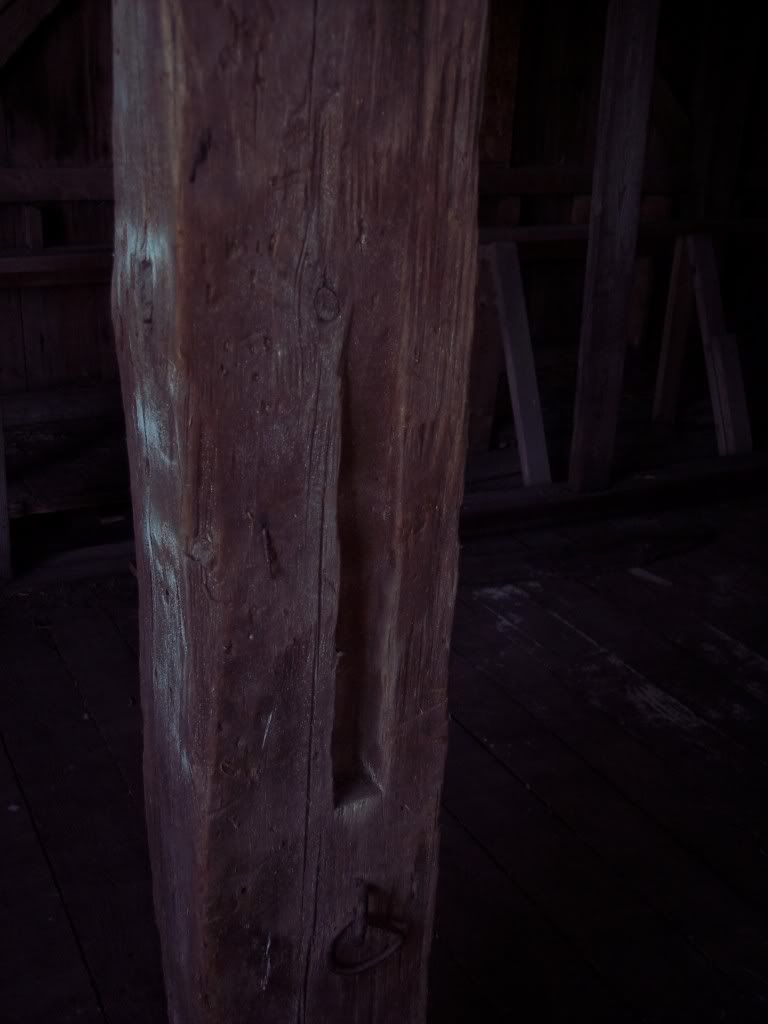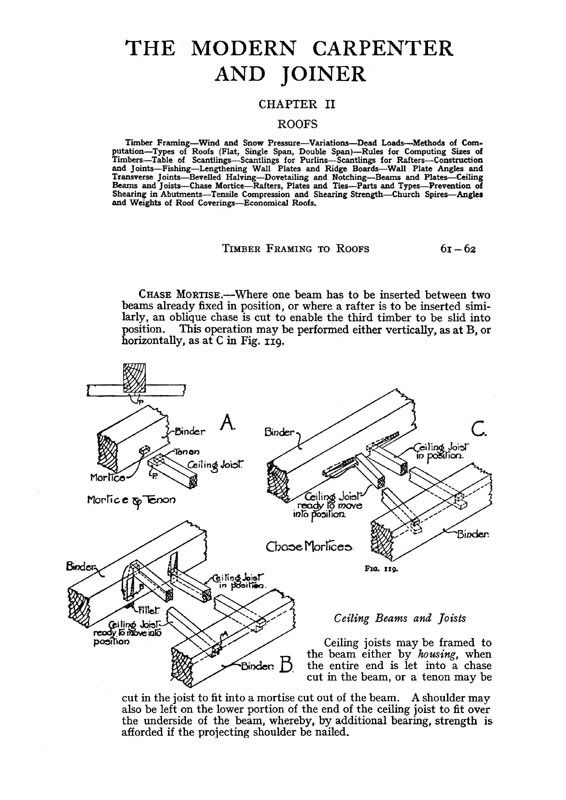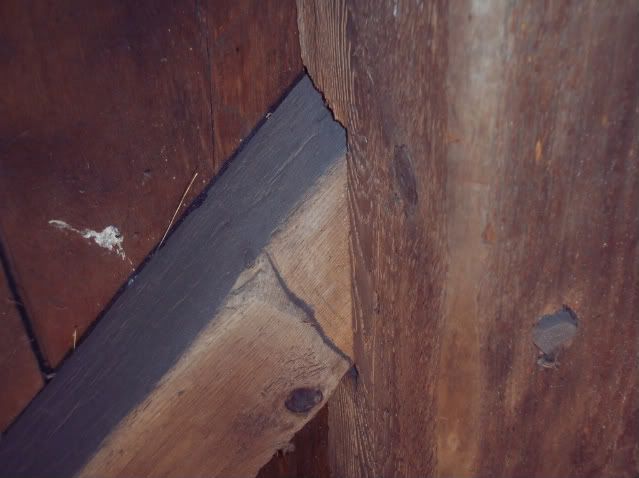Chase mortises I know, pulley and lateral threw me.
I’ve come across vertical variations in barns on rare occasion –

This particular barn was plumb full of them, some at either entry to insert and easily remove a bar across the open doors, to keep the stock either in or out.
The same barn, a typical NE Gable Entry, had an open chase mortise opposite a rectilinear mortise at the floor level in all the arcade posts, for the temp seasonal insertion of thresholds to aid in converting the drive bay to a threshing floor. This allowed the thresholds to be stowed away for the bulk of the year, so they didn’t get beat up and so there were no trippers.
All the removable pieces had long since been lost, or more likely reused as the barns use changed over time. I kept an eye peeled as we worked on the frame for a reused piece, but never turned one up.



